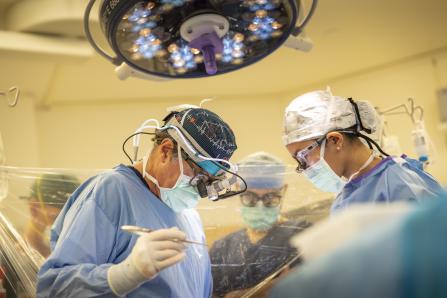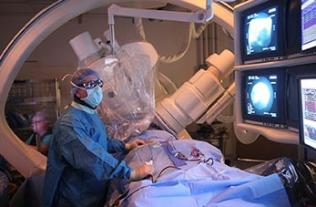Our fellows will have exposure to coronary bypass and associated conduit harvesting (open and endoscopic saphenous vein harvest), aortic, mitral, tricuspid valve procedures, ascending and descending aortic procedures, thoracic procedures including neoplastic and non-neoplastic, esophagectomy, thoracic robotic procedures, thoracic trauma, simulation laboratory sessions, central venous access/swan-ganz catheter placement, arterial line placement, chest tube placement, thoracentesis, intra-aortic balloon placement and removal, endotracheal intubation.
Didactic curriculum
The didactic curriculum will include cardiovascular and thoracic anatomy and physiology; acquired, congenital and neoplastic disease; thoracic trauma; invasive procedures; critical care management; pre, peri and postoperative patient management; operative intervention and outcomes; patient presentation, evaluation and testing; cardiac surgery journal club; CTOP tumor board conference; surgical grand rounds and M&M; and a presentation of two or more case studies throughout the academic year.
Clinical curriculum
The clinical curriculum is integrated within the didactic curriculum with rotations in cardiac and thoracic surgery every 3 months. Fellows are expected to perform daily rounds, present patients and implement the plan of care, give educational presentations, perform invasive diagnostic procedures and therapeutic procedures, and participate in all surgical aspects of the intraoperative care of cardiac and thoracic surgical patients.
Supervision
During your Cardiothoracic surgery fellowship, you will be mentored by the attending physicians, chief residents, physician assistants, nurse practitioners, and surgical residents. You will meet individually with the faculty throughout the program with formalized feedback at three, six and nine months into the program.

